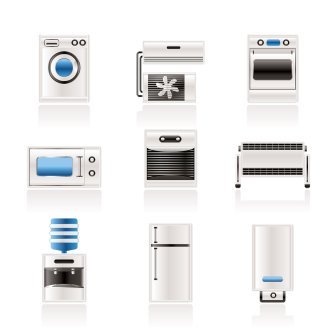In the past, residential electrical systems were designed to deliver the same amount of power from the electric panel to each of the outlets. However, some modern appliances have higher power demands than average electronics. In order to supply these appliances with the power they need without effecting any other appliances or electronics, a residential electrician can install dedicated circuits in your home. A dedicated circuit has its own circuit breaker inside the electric panel, and each dedicated circuit serves only one appliance. To help you understand your electrical system and make the best decision for your home, here are answers to some of the most frequently asked questions about dedicated circuits.
 Are Dedicated Circuits Required by Law?
Are Dedicated Circuits Required by Law?
Dedicated circuits can protect your home and your expensive appliances, but they are also required by the National Electric Code (NEC). If you have an older home that doesn’t have dedicated circuits for all of its fixed appliances, hire an electrician to install dedicated circuits to make sure that your system is up to code.
What Could Happen without a Dedicated Circuit?
Sure, dedicated circuits are required by law, but what’s the worst that could happen without them? We’re here to tell you, a lot can happen without them. For starters, dedicated circuits keep your expensive appliances in good shape by ensuring a steady source of reliable electricity. Secondly, if you do not have a dedicated circuit for a high power appliance and that appliance overload your home’s electrical system, the current may overheat the wires and cause a fire.
What Types of Appliances Need Dedicated Circuits?
Generally speaking, any appliance that uses a great deal of electricity should have a dedicated circuit. Some common examples of appliances that need a dedicated circuit include refrigerators, electric ovens and stoves, air conditioners, and electric furnace. Appliances with a motor should also have a dedicated circuit. When in doubt about an appliance, contact an electrician .


